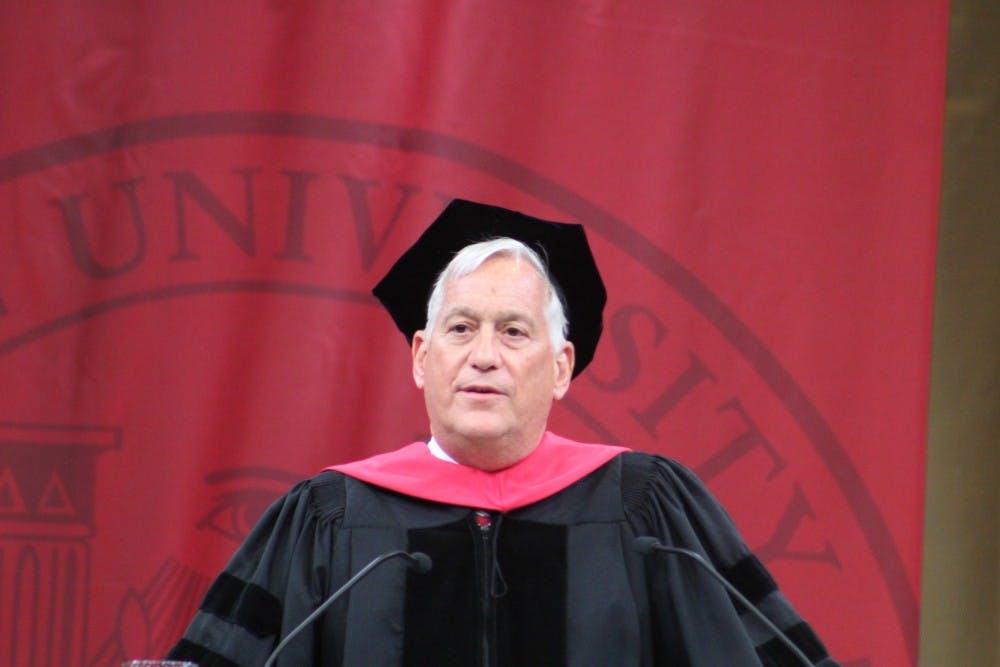Aspen Institute President and CEO Walter Isaacson consistently emphasized the importance of striking a balance during Spring Convocation 3:30 p.m. Thursday, Mar. 31 in Alumni Gym.
With technological innovation at the center of his lecture, he explained how innovators must find a balance between bringing their ideas to life and understanding the realities of the issues they are facing.
Isaacson told a story of being approached by someone claiming they were similar to Albert Einstein. In response, he told the person, "Einstein knew what was in the box before he got out of it."
"This life is not about easy rules," Isaacson said. "It's about figuring out the balance between difficult rules."
He explained how Apple co-founder Steve Jobs held off production for his product in order to make the circuit board more attractive. Though his colleagues argued there wasn't a need for change because users wouldn't see the ugly circuit board, Jobs said he would know the board was ugly. After about five weeks, the circuit board was visually appealing.
Similarly, Jobs challenged his employees to decrease the boot time by at least 10 seconds. Though many claimed this would be impossible, the goal was later achieved.
But while Jobs had a talent for pushing people beyond their expectations, he had a bit of a habit of distorting reality. Isaacson said Jobs believed he would not suffer from cancer, and as a result, he didn't seek medical help. The message, he said, is that one must strike a balance to become successful.
Isaacson claimed people have a lot to learn today from innovators of the past. He added how the framers of the Constitution found balance, compromise and admitted when they felt there were mistakes with the original drafts of the document. Isaacson made his point by citing how the original draft said "We hold these truths to be sacred," but was later replaced with "We hold these truths to be self-evident."
"I'm not sure the last time in this election we saw a candidate announce they made a mistake," Isaacson said, contrasting the 2016 presidential election with previous government officials.
As a former political correspondent for TIME in 1978, Isaacson developed a love for telling stories. His passion for journalism propelled him to a chairman and CEO position at CNN in 2001. But since that time, he has seen a major shift in the media landscape.
Before Convocation, Isaacson spoke with members of The Pendulum and Elon Local News addressing his concerns specifically within the field of political reporting.
"When I first started covering politics, the country wasn't as fragmented," he said. "Even though Ronald Reagan, who was quite conservative, was the first presidential candidate I covered, he was a very inclusive, decent person who tried to make everybody around him feel valued whether or not you liked his political philosophy.
"And nowadays, everybody's become quite bitter and poisoned, and that's a really bad thing for the country and for the media."
Video Clip: Isaacson shares thoughts on current media landscape before Convocation. Video by Elon Local News and The Pendulum.
He connected this sentiment to his overarching belief that balance is an important key to being successful.
At the end of Convocation, Isaacson offered a clear definition for innovation.
"[Innovation] is not about success," he said. "It's about making great things. It's about adding to this world. It's about being larger than yourself."
For a detailed live blog from Spring Convocation, please click here.


